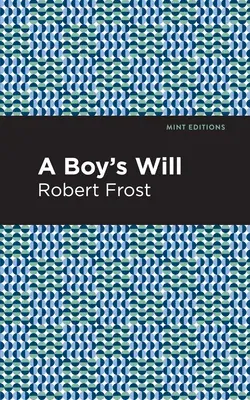A Boy's Will (1913) is a collection of poems by American poet Robert
Frost. Published in London and dedicated to the poet's wife, Elinor, A
Boy's Will, which received enthusiastic early reviews from both Ezra
Pound and W.B. Yeats, launched Frost's career as America's leading poet
of the early-twentieth century. Invoking such figures as Henry Wadsworth
Longfellow, Emily Dickinson, and Thomas Hardy, Frost ties himself to
tradition while establishing his own poetic legacy, grounded in an
intuitive sense of rural New England life and the subtleties of the
soul.
"Into My Own," the collection's opening poem, reveals the poet's strange
wish to "steal away" into "those dark trees, / So old and firm they
scarcely show the breeze." Without fear, he welcomes uncertainty,
ventures into it willingly, knowing it is the only way to live. In
"Ghost House," the poet enters a realm of shades and spirits, an
underworld of memory where "a lonely house" has left "no trace but the
cellar walls." As he moves through this twilight landscape, encountering
the "mute folk...Who share the unlit place" with him, the poet meditates
on life and death, their proximity and distance, and his own sense of
self within both. "Mowing" envisions the poet's work through the prism
of rural labor. "There was never a sound beside the wood but one / And
that was my long scythe whispering to the ground. / What was it it
whispered?" The speaker does not know, but continues his task,
hypnotized by its rhythm and music.
With a beautifully designed cover and professionally typeset manuscript,
this edition of Robert Frost's A Boy's Will is a classic of American
literature reimagined for modern readers.


